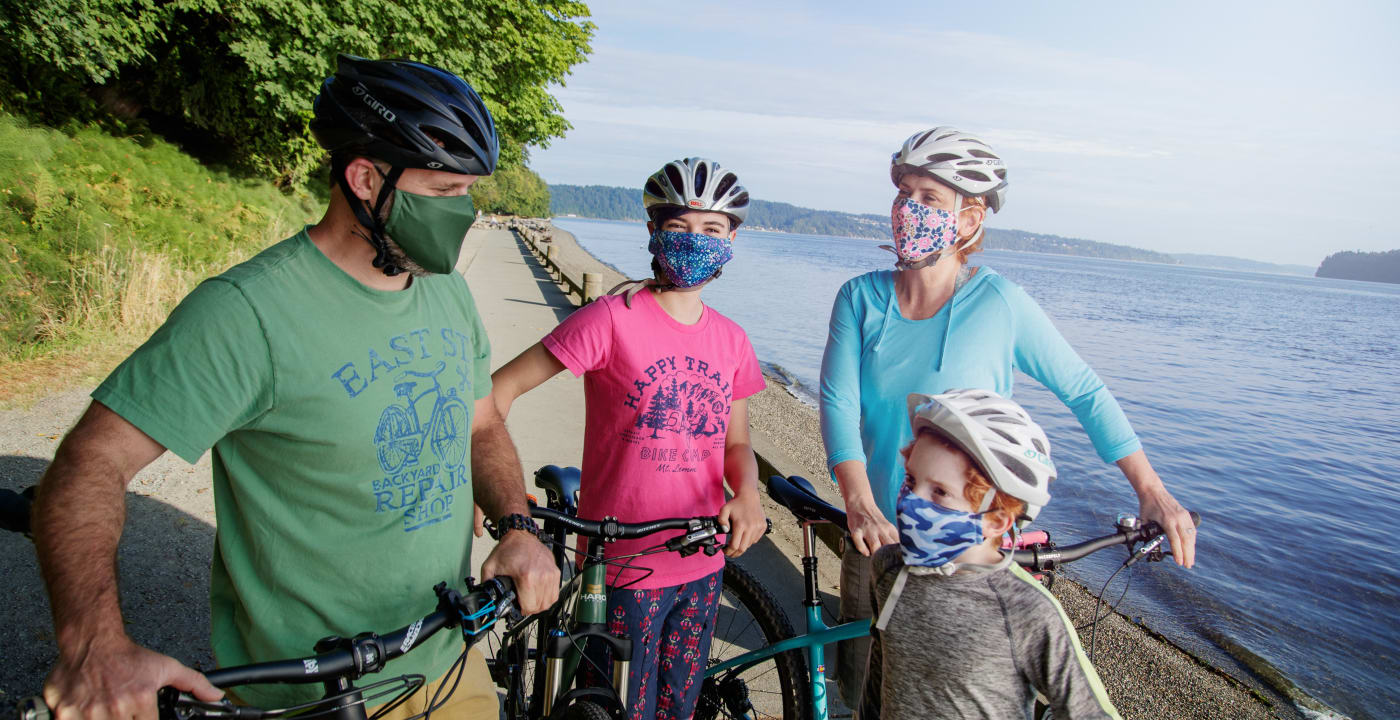Vaccinated against COVID-19? You still need to stay safe

The COVID-19 vaccine rollout may be slower than hoped for, but the good news is that more people are getting vaccinated every day. Once you’ve gotten your two doses of vaccine, does that mean you can toss your mask and start hugging your friends? Not yet, according to two physician experts at MultiCare.
“The precautions in place should not change,” said Mary Fairchok, MD, pediatric infectious disease specialist with Mary Bridge Children’s Hospital & Health Network.
We spoke with Dr. Fairchok and Gretchen LaSalle, MD, family medicine physician with MultiCare Rockwood Clinic – Quail Run to learn more about why health care experts recommend continuing to practice these measures:
- Physical distance: That is, stay at least six feet away from anyone who doesn’t live in your household, indoors and out
- Wear masks in public: Preferably commercially made masks with at least two layers
- Wash hands frequently: Especially after you come into contact with high-touch surfaces (elevator buttons, door knobs, gas pumps, grocery store items and so on)
- Stay home if you’re sick: And get tested if you have symptoms of COVID-19
“There are many reasons for this,” said Dr. Fairchok. “For one, it takes about two weeks after the second vaccine to achieve full immunity. Think of the first dose as a coat of primer and the second dose as the coat of paint.”
“We’re still going to have widespread COVID-19 in the community because the vaccine rollout will take several months,” said Dr. LaSalle.
And, while the vaccines have proven to be around 95 percent effective globally, no vaccine is 100 percent effective, Dr. LaSalle noted.
“We don’t yet know if the vaccine totally prevents us from being infected or passing the virus on to someone else,” she said. “Even though these are excellent vaccines, not everyone is fully immune.”
Three new variants of the COVID-19 virus, first identified in the United Kingdom, South Africa and Brazil, respectively, are also cause for continued vigilance. All three are now in the U.S.
“These strains are more contagious and easier to spread than the original virus,” said Dr. Fairchok.
There is not yet definitive data on whether the new strains are more deadly, or if the developed vaccines will be as effective against them, though research is ongoing.
“There is a huge effort underway by scientists across the world,” she said. “Pfizer and Moderna are working to update the vaccines. They can do this really quickly. Preliminary studies show reduced immunity to these strains from the original vaccine, but there is evidence of some cross protection.”
Both doctors recommend getting the vaccine even if you’ve already had COVID-19, because it’s not clear how long immunity lasts after having the illness or if re-infection is possible.
What about family gatherings post-vaccination?
“My patients ask if they and their older family members get vaccinated, can they hang out together without wearing masks,” said Dr. Fairchok. “I tell them it’s a risk calculation. The risk of infection is reduced but not zero.”
Both Drs. Fairchok and LaSalle are hopeful that enough people in the U.S. will be vaccinated by the end of summer 2021 to achieve herd immunity (defined as 70 percent of people having been vaccinated and/or been infected).
In the meantime, Dr. LaSalle advises, “Work in your own social circle to encourage vaccinations. People who are concerned about the vaccine should reach out to a trusted physician.”



